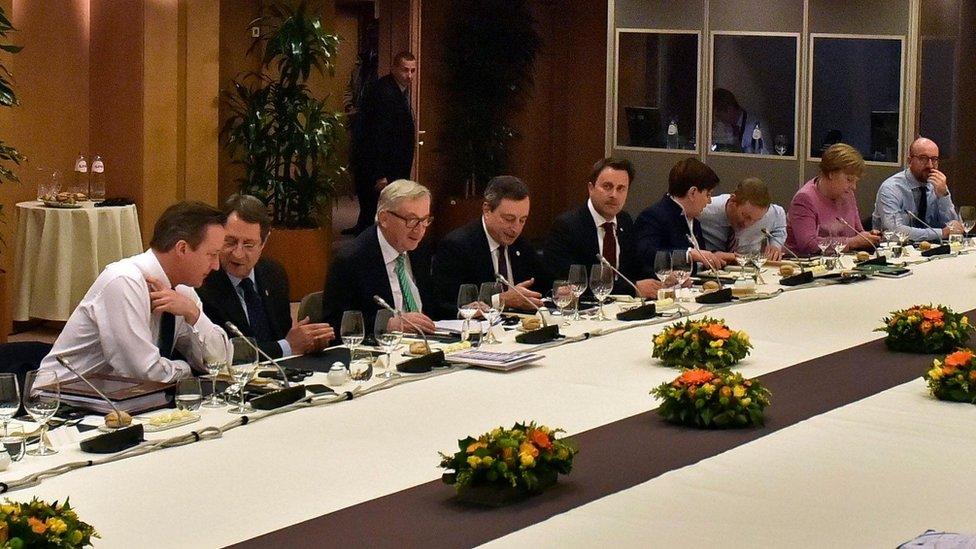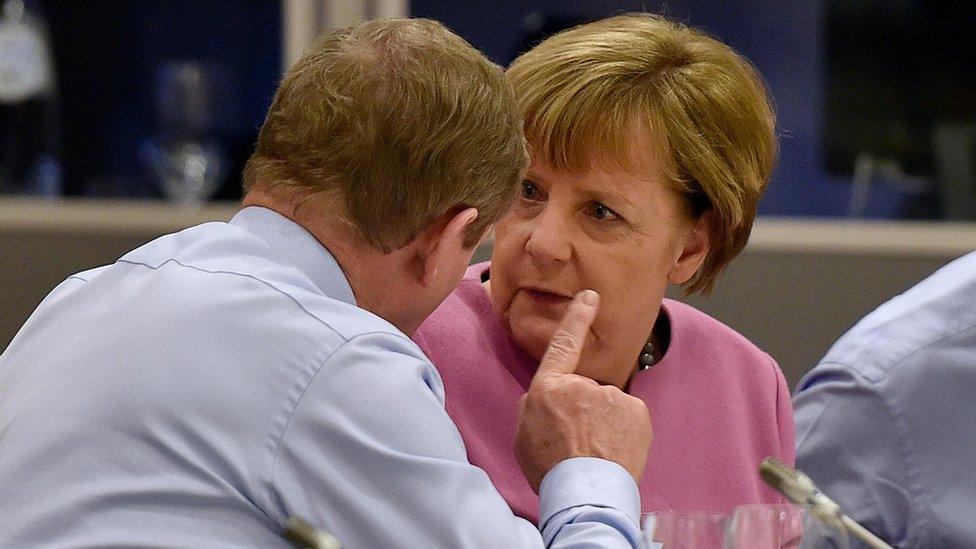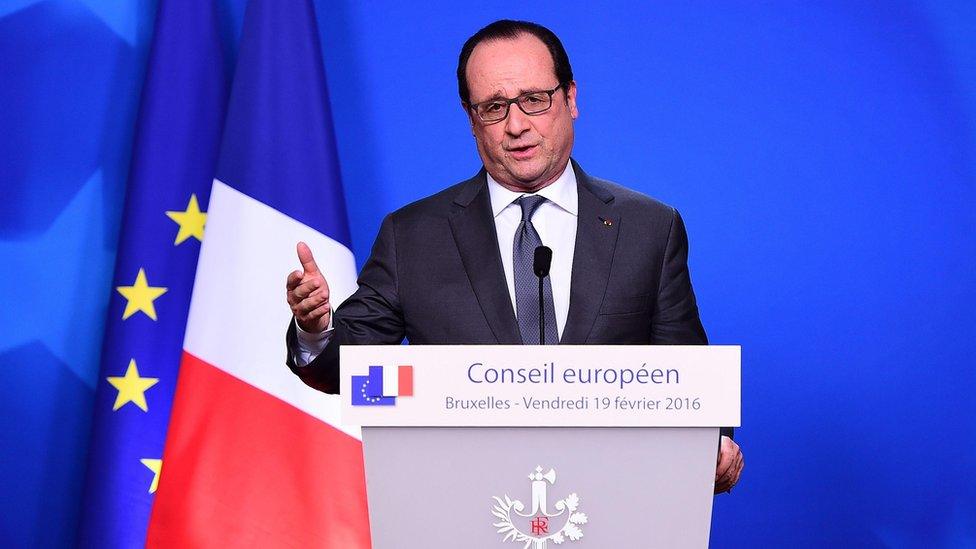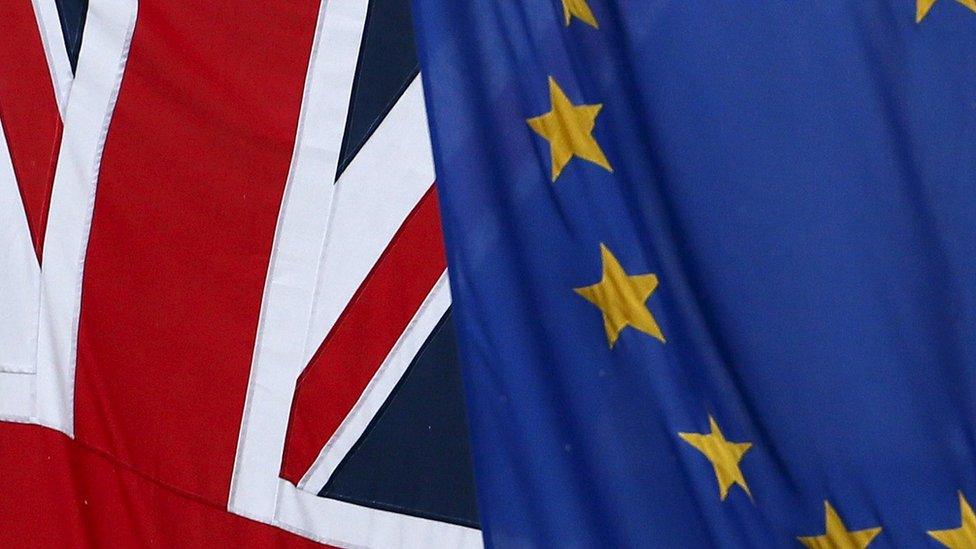EU leaders and the struggle with UK's ‘special status’
- Published

How would you summarise the reaction of European leaders to the special deal the UK has negotiated on the EU? Relief? Celebration? Or just a general gritting of teeth?
After all the detailed wrangling over British social welfare issues with EU migrants, there is a desire among the other 27 members to move on.
Belgium emerged as a tough negotiator, and won a clause stating that the whole UK deal would be binned if British voters said No to EU membership.
That was to prevent any attempt by British Eurosceptics to wring more difficult concessions out of the EU in any future renegotiation of membership.
Belgian Prime Minister Charles Michel said the deal was "the best decision possible" and would help to strengthen the EU.
Belgium also battled hard with France for the text to make clear that the UK and other "euro outs" would not be able to block or meddle with the eurozone's push for deeper integration.
Benefit rules
German Chancellor Angela Merkel said: "I don't think we gave the UK too much," but she was clearly stung by David Cameron's staunch opposition to EU "ever-closer union".
"Ever-closer union is an emotional question. We want integration to progress, and it's not easy when someone says something quite different," she said.
Germany remains at the heart of European integration, steeped in democratic federalism since World War Two.
Mrs Merkel was more positive on the changes to the child benefit rules, saying these could be good for Germany too. She applauded Mr Cameron's tough stance against welfare abuses.

Germany's Angela Merkel is backing the changes to welfare rules for migrants
Denmark's praise on that score will be even more music to Mr Cameron's ears.
Danish Prime Minister Lars Lokke Rasmussen tweeted , external(in Danish): "Tough fight from the Danish side for child benefits indexation for all countries. A victory that I have been fighting for, for years."
Lithuanian President Dalia Grybauskaite seemed to be enjoying the summit "drama", as she called it.
She found time to joke about the political spin, with each nation trying to put on a brave face.
"Whatever face-saving and face-lifting exercise we do - decision belongs to British people," she tweeted, external.
'Non-negotiation'
Much attention focused on the battle between Mr Cameron and Central European states over the proposed benefit curbs for EU migrant workers in the UK.
Czech Europe Minister Tomas Prouza told the BBC he understood how crucial it was for the UK to get this deal, and get it now. But he criticised what he called Mr Cameron's "non-negotiation approach".
"We heard the same message again and again," he complained, saying Mr Cameron "was refusing to bend - he was tougher than we expected".
Mr Prouza added: "Everybody else was trying to find a compromise."

France remains a staunch defender of the European project
Like Chancellor Merkel, French President Francois Hollande cast himself in this "drama" as one of the bearers of the flame of European unity and integration.
After the deal was done, he insisted that Europe was still a "joint project" and meant much more than "just a budget".
He was satisfied that the text underlined the "level playing field" in the area of financial regulation - so no special favours for the City of London, vis-a-vis the eurozone.
But he pointedly reminded everyone that "you can't have an a la carte Europe" if you're in the EU.
Italy's Prime Minister Matteo Renzi echoed that message. He called it a good deal with the UK, but said "Europe was a great dream - we need to build a Europe for the future".
- Published20 February 2016
- Published19 February 2016
- Published21 February 2016
